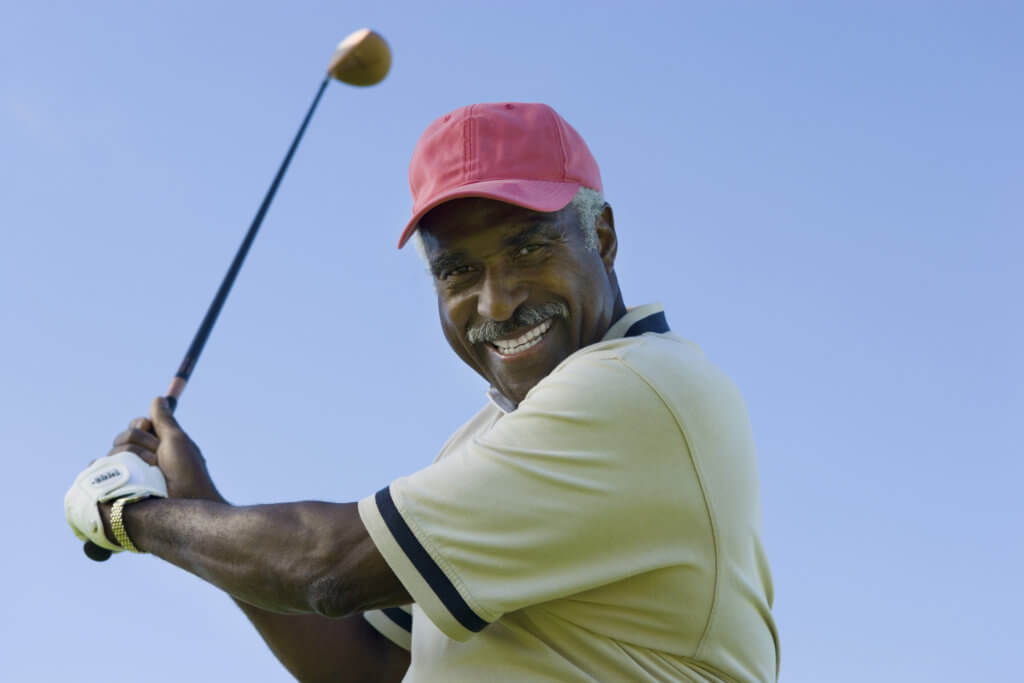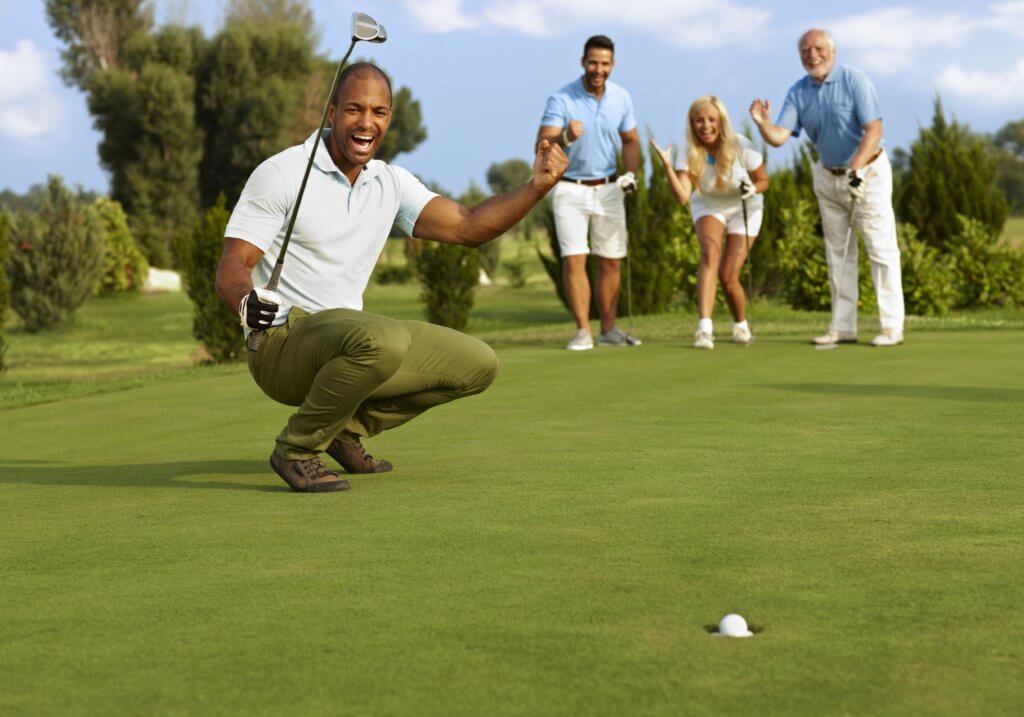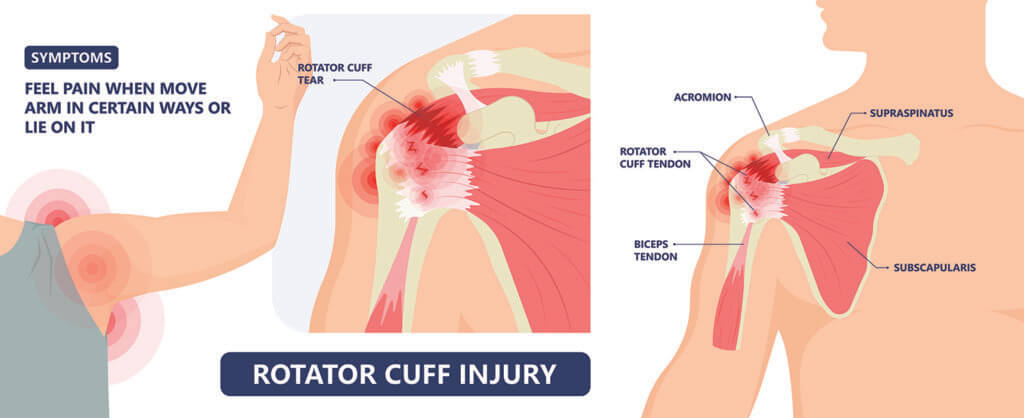Is Shoulder Pain Affecting Your Golf Game? You May Have a Rotator Cuff Injury
Rotator cuff injuries are very common, affecting nearly two million adults every year. Left untreated, this injury can cause extreme shoulder pain, and make it difficult to perform daily activities like getting dressed — never mind enjoying your favorite sports, like golf and tennis.
As we move closer toward the warm weather months, and golf courses throughout Long Island gear up to open, now is the time to have your persistent shoulder pain looked at by a doctor. If surgical treatment is needed, rotator cuff surgery is an effective option for treating damaged shoulder muscles, and getting you back to doing what you love.
With the team of board-certified orthopedic surgeons from South Island Orthopedics on your side, you can hit the links in Syosset, Oyster Bay, or even the challenging Bethpage Black this summer — pain-free.
What is the Rotator Cuff?
Shoulder joints are ball and socket-style structures. The ball is the top of the humerus (upper arm bone) that fits into the socket in the shoulder blade. The joint also includes the clavicle, or collar bone. All the bones are held in place by a group of four muscles that come together as tendons covering the end of the humerus — the rotator cuff.
The rotator cuff both holds your arm bone in place, and helps you lift and move your arm. Unfortunately, over time the tendons can become worn due to age. This leaves them vulnerable to painful and debilitating tears. However, the tendons are also vulnerable to sudden injuries, such as from a fall.
What Does it Mean When a Rotator Cuff is Torn?
When a rotator cuff tears, it separates from the humerus, either partially or entirely. In most cases, the affected tendon is the supraspinatus tendon, which covers the very top of the arm bone. However, any of the tendons can be torn.
You may be wondering if a rotator cuff can heal without surgery, or if a surgical repair is the only option. The answer largely depends on the extent of the injury, the pain you experience, and the level of function. A very large (more than 3 cm) or complete tear will most likely require rotator cuff surgery, since the tendon will not reattach to the bone on its own.
The Types of Rotator Cuff Injuries
The majority of rotator cuff tears are degenerative injuries, caused by age or repetitive stress. As we get older, the blood flow to muscles and tendons decreases, which can eventually weaken them and leave them vulnerable to injury.
However, repetitive stress is also a common source of rotator cuff tears. Performing the same movements over and over can stress and weaken the tendons. Many people who play golf or tennis commonly require rotator cuff surgery to repair the damage caused by repetitive motion.
Sports aren’t the only source of stress, though. Performing repetitive motions at work or home — like frequent yard work — can also strain the tendons.
It is also possible for a rotator cuff to tear suddenly. Landing on an outstretched arm when you fall or experiencing an injury from a car accident that causes a shoulder dislocation or broken collarbone can lead to a muscle tear.
Overall, those who are most vulnerable to rotator cuff injuries include:
- People over 40
- Athletes, particularly those who play tennis, baseball, golf, or other sports that require repetitive arm movements
- Individuals with jobs that require overhead work, like painters and carpenters
- Injury victims in auto-related accidents
Signs of a Torn Rotator Cuff
Because rotator cuff tears often happen gradually, they don’t always cause pain — at least not right away. However, if you have pain and ignore it or continue your normal activities (like your weekly golf game) without treatment, the tear could get worse.
You should make an appointment to see an orthopedic surgeon if you have any of the following symptoms of a torn rotator cuff:
- Pain when lifting or lowering your arm
- Pain when lying down, especially when lying on your shoulder
- Crepitus, or a “cracking” sound when you move your arm
- Weakness in your shoulder
- Pain that lasts longer than six weeks and no longer responds to medication
If you find yourself modifying activity because of shoulder pain — for example, you aren’t able to follow through on your golf swing without discomfort — talk to a doctor. Even if you don’t have any pain, weakness and a lack of mobility can impact your daily activities.
Treating a Torn Rotator Cuff
Most rotator cuff injuries can be treated nonsurgically with rest, activity modifications, physical therapy, and anti-inflammatory medication. Some people also benefit from steroid injections to alleviate pain. If the injury is minor, the rotator cuff can heal without surgery, but it will take longer. There is also a greater risk for complications (like infection) or a worsening injury.
Therefore, rotator cuff surgery is often recommended for those with more substantial tears, or those who want to maintain an active lifestyle. There are pros and cons of rotator cuff surgery, as with any procedure.
Pros:
- Restores mobility and function
- Pain relief
- Most procedures are minimally invasive
Cons:
- Risk of infection
- Recovery can take up to six months
- Potential for stiffness without aggressive physical therapy during recovery
- Potential for infection
- Chance of re-injury
Are You a Candidate for Rotator Cuff Surgery?
The only way to know whether you’re a good candidate for surgery to repair a torn rotator cuff is to see a doctor. The board-certified surgeons of South Island Orthopedics use the most advanced tools and methods to diagnose and treat shoulder injuries, from diagnostic imaging via MRI and CT scan to arthroscopic surgery.
If shoulder pain is affecting your golf game, now is the ideal time to make an appointment at SIO. The team will determine the cause of your pain and get started on a treatment plan that will have you back on the links as soon as possible.
Posted in: Local, Neck/Back & Shoulder, Sports Medicine



